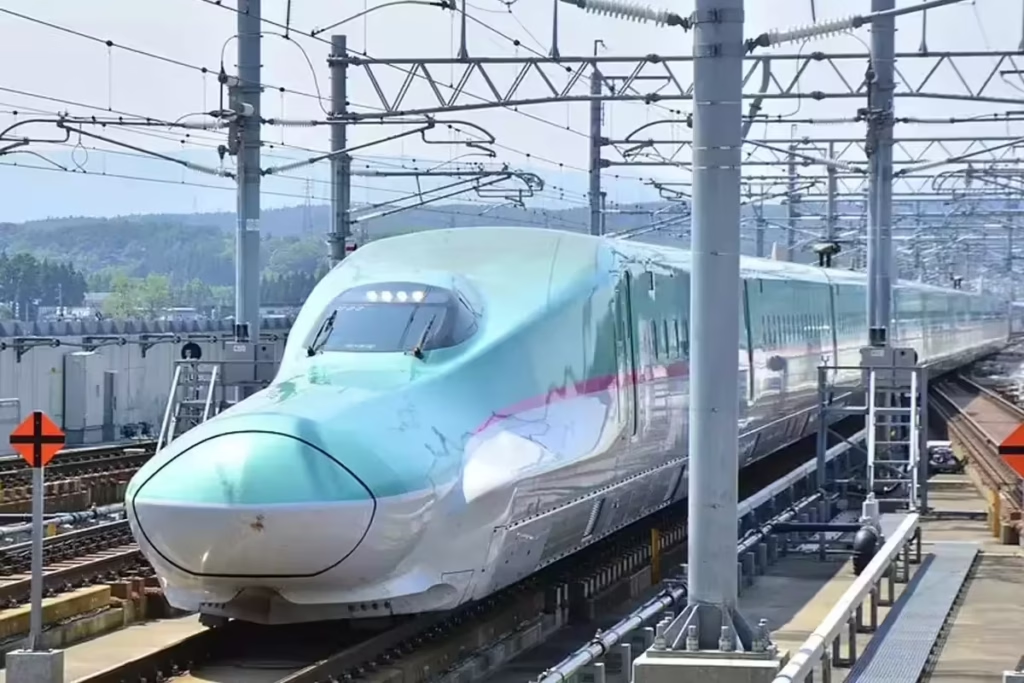India Mega Projects: Looking towards 2030, journeys across India will not look the same. Speed, access, and scale are being redefined. Tracks are stretching, runways are opening, and roads are cutting distances. These changes are not just about infrastructure. They are about new connections shaping every movement of people, trade, and time.
1. High-Speed Rail & Bullet Train Corridors
India is building a high-speed rail that promises to cut long trips into short journeys. The bullet train project India will redefine time, distance, and the way people travel between major cities.
- Mumbai-Ahmedabad Bullet Train
The Mumbai-Ahmedabad bullet train is India’s first high-speed line. Built at a cost of ₹1.1 lakh crore, it targets 2026. Travel will shrink from six hours to two hours. This bullet train project India shows how rail will redefine journeys.

- Delhi-Varanasi Bullet Train
The Delhi–Varanasi bullet train covers approximately 855 km with stops including Ayodhya. It costs about ₹1.8 lakh crore, targets completion by 2030-31, and will reduce travel time to around eight hours.
2. Greenfield Expressways & National Highways
Upcoming expressways in India 2025-2030 are changing how people move on roads. These corridors will shorten journeys, connect distant states, and boost the national road network with faster travel routes.
- Delhi-Mumbai Expressway
The Delhi-Mumbai Expressway is India’s longest at 1,386 km. It costs around ₹1 lakh crore. Full completion is expected in 2025. This upcoming expressway in India 2025-2030 will cut travel time from 24 hours to 12 hours.
- Gorakhpur-Siliguri Expressway
The Gorakhpur-Siliguri Expressway stretches 519 km across eastern states. Built with ₹32,000 crore, it targets 2025. It will cut travel to under eight hours. This upcoming expressway in India 2025-2030 will connect Uttar Pradesh to the northeast.
3. Aviation Revolution: New Airports & Air Connectivity
New airports are rising to ease traffic at crowded hubs. These projects will allow more regional flights, better access, and higher passenger capacity in India’s fast-growing aviation sector.
- Navi Mumbai International Airport
The Navi Mumbai airport costs ₹16,700 crore and is planned for 2025. It starts with a 20 million capacity and expands to 90 million. This addition to India mega projects 2030 will support western India’s aviation growth.
- Jewar (Noida) International Airport
The Noida International Airport costs ₹29,560 crore. It opens in 2025 with a capacity for 12 million passengers. Later, it will become Asia’s largest hub. This airport strengthens India’s mega projects that focus on connectivity beyond metros.
4. Ports, Logistics & Digital Transport Corridors
Ports and logistics corridors are being expanded to move goods faster. These projects will lower costs and improve connectivity between highways, waterways, and shipping hubs across the country.
- Vadhavan Port
The Vadhavan port in Maharashtra is a ₹76,200 crore project. It will be completed by 2030. With a handling capacity of 254 million tonnes, this port will reshape western coastal trade. It marks a milestone in India mega projects.
- Sagarmala Expansion
The Sagarmala program includes 200 projects worth ₹6.5 lakh crore. Completion targets extend to 2030. These projects will modernise ports, cut costs, and ease cargo movement. Sagarmala remains vital for the trade future.
5. Smart Mobility & Future Plans
India is linking transport systems through digital planning and logistics hubs. These projects will make cargo movement faster, smoother, and cost-effective across different modes by 2030.
- Gati Shakti Master Plan
The Gati Shakti plan is worth ₹100 lakh crore. By 2030, it will integrate data across networks. This digital base will guide India mega projects, ensuring smoother logistics and easier coordination between transport modes.
DON'T MISS
- Multimodal Logistics Parks
Thirty-five logistics parks are being built with ₹50,000 crore. Completion is expected between 2025 and 2030. These hubs will cut costs and speed cargo. It highlights how the mega projects are pushing smarter freight systems.
6. Urban Mobility & Metro Expansions
Indian cities are building metro networks that will carry millions daily. These expansions will reduce road traffic, save time, and bring faster journeys to urban commuters.
- Mumbai Metro Network Expansion
Mumbai is building Lines 2A, 2B, 3, 4, and 9 at a cost of ₹33,000 crore. As we approach 2030, it will carry over one crore passengers every day. This metro expansion stands central to India mega projects.
- Delhi Metro Phase IV
Delhi Metro Phase IV adds 103 km with ₹25,000 crore. Completion is set by 2026. It will carry 15 lakh more passengers daily. By 2030, this metro will form a backbone for the capital’s growth.
7. Inland Waterways & Smart Mobility Initiatives
Rivers and waterways are turning into travel routes again. These projects will give cheaper and cleaner ways for both cargo and passengers to move.
- National Waterway-1 (Varanasi-Haldia Stretch)
The National Waterway-1 is 1,390 km long. With a cost of ₹5,369 crore, it will finish in 2025. This project opens cargo routes from eastern Uttar Pradesh to Bengal, a key step in mega projects infrastructure.
- Kochi Water Metro
The Kochi Water Metro costs ₹1,136 crore. It started partial services in 2023 and was completed in 2025. Covering 38 terminals, it connects islands with the mainland. This unique system supports upcoming expressways in India 2025-2030.
India mega projects are reshaping travel from rails and trains to highways. By 2030, these changes will transform the nation’s movement map completely.